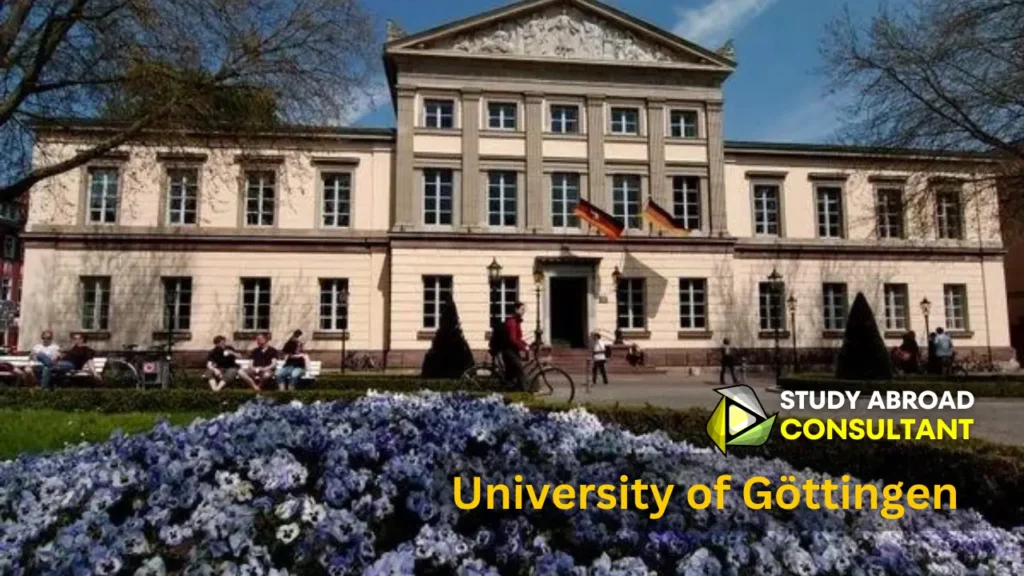Germany is renowned for its exceptional higher education system, offering numerous prestigious Universities in Germany that attract students from all over the globe. Known for their rigorous academic programs, cutting-edge research, and vibrant campus life, these universities provide an ideal environment for intellectual and personal growth. Below, we delve into the top 10 universities in Germany, highlighting their unique strengths and contributions to the world of academia.
1. Ludwig Maximilian University of Munich (LMU Munich)
Ludwig Maximilian University of Munich, commonly referred to as LMU Munich, stands out as one of Germany’s oldest and most distinguished institutions. Established in 1472, LMU has a rich history of academic excellence and innovation. It offers a broad spectrum of disciplines, including humanities, social sciences, natural sciences, and medicine.
Key Highlights:
- Research Excellence: LMU Munich is a hub for groundbreaking research, with numerous Nobel laureates among its faculty and alumni.
- International Collaboration: The university fosters global partnerships and offers a wide range of exchange programs.
- Campus Life: Located in the heart of Munich, LMU provides students with a vibrant cultural and social scene.
2. Technical University of Munich (TUM)
The Technical University of Munich is a leading research university with a strong focus on engineering, natural sciences, and technology. Founded in 1868, TUM has established itself as a powerhouse of innovation and scientific advancement.
Key Highlights:
- Innovation and Technology: TUM is renowned for its cutting-edge research in areas such as robotics, artificial intelligence, and biotechnology.
- Entrepreneurial Spirit: The university actively supports startups and entrepreneurial ventures through its numerous initiatives and incubation programs.
- Global Network: TUM collaborates with top universities and research institutions worldwide, providing students with ample opportunities for international exposure.

3. Heidelberg University
Heidelberg University, established in 1386, is Germany’s oldest university and one of the most reputable in Europe. It offers a wide range of academic programs and is particularly known for its contributions to the fields of medicine, law, and social sciences.
Key Highlights:
- Historical Significance: As one of the oldest universities in the world, Heidelberg boasts a rich academic tradition and historic campus.
- Research and Innovation: The university is home to numerous research institutes and has a strong emphasis on interdisciplinary studies.
- International Outlook: Heidelberg attracts a diverse student body and offers extensive international exchange programs.
4. Humboldt University of Berlin
Humboldt University of Berlin, founded in 1810, is a prominent institution with a strong emphasis on research and academic excellence. It has played a pivotal role in the development of modern education systems and continues to be a leader in various academic fields.
Key Highlights:
- Academic Prestige: Humboldt University is known for its rigorous academic standards and distinguished faculty.
- Research Opportunities: The university offers a wealth of research opportunities across various disciplines, supported by state-of-the-art facilities.
- Cultural Hub: Situated in Berlin, students have access to a dynamic cultural and political environment.
5. University of Freiburg
The University of Freiburg is one of the popular university among Universities in Germany, established in 1457, is known for its comprehensive range of academic programs and strong research output. It is particularly recognized for its contributions to the fields of medicine, humanities, and social sciences.
Key Highlights:
- Interdisciplinary Approach: The university promotes interdisciplinary research and collaboration across different fields of study.
- Sustainability Focus: Freiburg is a leader in environmental research and sustainability initiatives.
- Student Experience: The picturesque campus and vibrant student life make it an attractive choice for students.

6. RWTH Aachen University
RWTH Aachen University is one of Europe’s leading institutions for engineering and technology. Founded in 1870, it has a strong focus on practical applications and industry collaboration.
Key Highlights:
- Engineering Excellence: RWTH Aachen is renowned for its engineering programs, particularly in mechanical and electrical engineering.
- Industry Connections: The university has strong ties with industry partners, providing students with practical experience and career opportunities.
- Innovative Research: RWTH Aachen is at the forefront of research in fields such as renewable energy and materials science.
7. University of Tübingen
The University of Tübingen, established in 1477, is known for its high-quality education and research across a wide range of disciplines, including humanities, natural sciences, and social sciences.
Key Highlights:
- Academic Tradition: Tübingen has a long-standing reputation for academic excellence and scholarly tradition.
- Research Focus: The university is home to several research centers and institutes, fostering innovation and discovery.
- Scenic Location: Located in a historic town, Tübingen offers a unique blend of academic rigor and picturesque surroundings.
8. University of Bonn
The University of Bonn, founded in 1818, is a leading research university with a strong emphasis on international cooperation and interdisciplinary studies. It is particularly noted for its programs in mathematics, economics, and life sciences.
Key Highlights:
- Research Leadership: The university is involved in numerous prestigious research projects and collaborations.
- Global Perspective: Bonn has a strong international orientation, with extensive partnerships and exchange programs.
- Vibrant Campus Life: The university offers a dynamic and engaging campus environment.
9. Free University of Berlin
The Free University of Berlin, established in 1948, is one of Germany’s premier institutions, particularly known for its social sciences, humanities, and natural sciences programs.
Key Highlights:
- Academic Excellence: The university is recognized for its rigorous academic standards and high-quality research output.
- International Focus: The Free University has a strong international network and offers numerous study-abroad opportunities.
- Urban Campus: Located in Berlin, students benefit from the city’s vibrant cultural and intellectual atmosphere.

10. University of Göttingen
The University of Göttingen is best among Universities in Germany, founded in 1737, is a research-intensive university known for its strong programs in the sciences and humanities. It has a rich history of academic achievement and innovation.
Key Highlights:
- Research Prowess: Göttingen is home to numerous research institutes and has a strong emphasis on scientific inquiry.
- Academic Tradition: The university boasts a long tradition of academic excellence and scholarly contributions.
- Student Engagement: Göttingen offers a supportive and engaging environment for students, with numerous extracurricular opportunities.
Conclusion
Universities in Germany offer a diverse array of academic programs and research opportunities, making them attractive destinations for students worldwide. These institutions are renowned for their commitment to academic excellence, innovation, and global collaboration. Whether you are interested in engineering, humanities, social sciences, or natural sciences, Universities in Germany provide an enriching environment to pursue your academic and professional goals.
Also Read : Study In Germany
FAQs About Universities in Germany
1. What are the top universities in Germany?
The top universities in Germany include:
- Ludwig Maximilian University of Munich (LMU Munich)
- Technical University of Munich (TUM)
- Heidelberg University
- Humboldt University of Berlin
- University of Freiburg
- RWTH Aachen University
- University of Tübingen
- University of Bonn
- Free University of Berlin
- University of Göttingen
2. What makes Universities in Germany stand out globally?
Universities in Germany are renowned for their academic rigor, cutting-edge research, and strong international collaborations. They offer diverse programs across various fields and are known for their contributions to science, engineering, humanities, and social sciences. Additionally, many of these Universities in Germany have rich histories and traditions that add to their global prestige.
3. How can international students apply to German universities?
International students can apply to Universities in Germany by:
- Researching the specific requirements of the university and program they are interested in.
- Ensuring they meet the language proficiency requirements, usually in German or English.
- Submitting necessary documents, such as transcripts, a resume, letters of recommendation, and a statement of purpose.
- Applying through the university’s online portal or through platforms like Uni-Assist.
4. Are there tuition fees for studying in Germany?
Most public Universities in Germany do not charge tuition fees for undergraduate programs. However, there might be a nominal semester fee that covers administrative costs and student services. Some master’s programs, particularly those taught in English or those at private institutions, may charge tuition fees.
5. What is the cost of living for students in Germany?
The cost of living for students in Germany varies depending on the city and Universities in Germany. On average, students can expect to spend between €700 and €1,000 per month on accommodation, food, transportation, health insurance, and leisure activities. Cities like Munich and Berlin tend to be more expensive, while smaller cities like Göttingen or Freiburg might be more affordable.
6. What language is primarily used in Universities in Germany?
Many undergraduate programs in Germany are taught in German, so proficiency in the language is often required. However, there are a growing number of master’s programs offered in English, especially in fields like engineering, natural sciences, and business.
7. Are scholarships available for international students in Germany?
Yes, there are numerous scholarships available for international students in Germany. These can be awarded by the German Academic Exchange Service (DAAD), individual Universities in Germany, and other organizations. Scholarships may cover tuition fees, living expenses, or both.
8. Can international students work while studying in Germany?
Yes, international students in Germany are allowed to work part-time while studying. Non-EU students can work up to 120 full days or 240 half days per year. EU students have the same working rights as German students and can work up to 20 hours per week during the semester.
9. What are the accommodation options for students in Germany?
Accommodation options for students in Germany include:
- University dormitories or student residences, which are often affordable and located near campus.
- Private apartments or shared flats (Wohngemeinschaft or WG), which offer more independence but can be more expensive.
- Private student housing, which may offer amenities like gyms, study rooms, and social spaces.
10. How can students immerse themselves in German culture?
Students can immerse themselves in German culture by:
- Participating in university clubs and organizations.
- Attending local events and festivals.
- Exploring the city and engaging with the local community.
- Taking advantage of cultural programs and excursions offered by the university.
- Learning the German language to better connect with locals.



